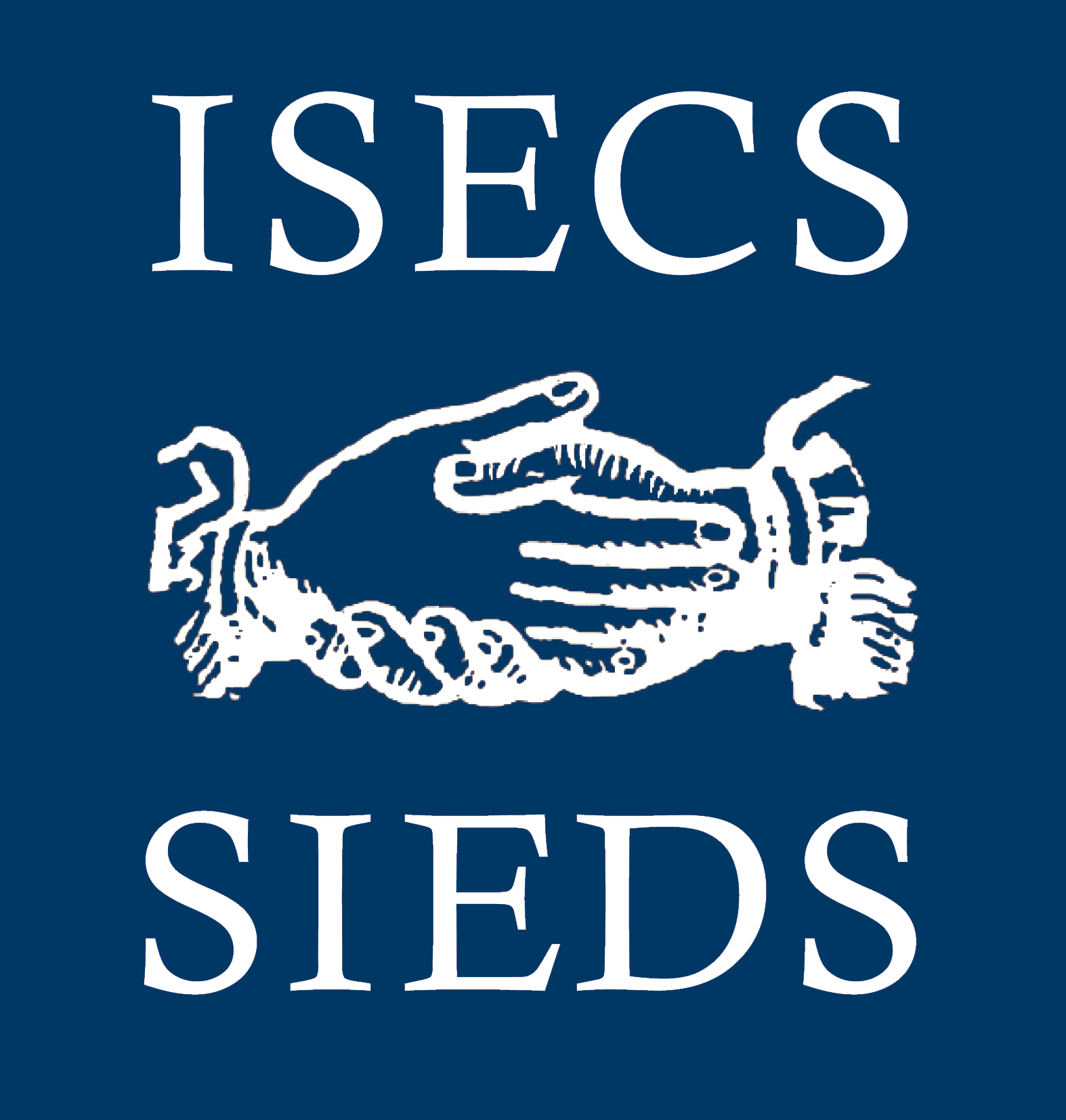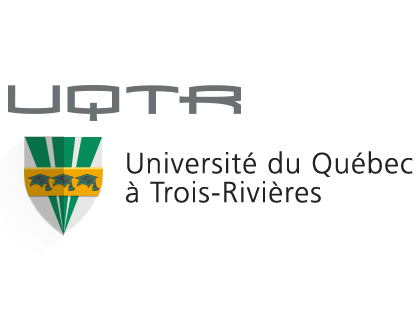 Dear colleague and fellow-member of ISECS,
Dear colleague and fellow-member of ISECS,
As a member of a National Society for Eighteenth-Century Studies, you are also, by affiliation, a member of the International Society for Eighteenth-Century Studies (ISECS). Currently, ISECS is composed of 34 Affiliated Societies, which pay fees to ISECS; and four Associate Societies, which do not pay fees and whose members do not participate in elections for the Executive Committee.
It is a pleasure to be in touch with you directly, to outline the aims and functions of ISECS, and to encourage our collective international contacts.
ISECS has two official languages, which are French and English.
1. HISTORY OF ISECS
The story of ISECS is linked with the story of Theodore Besterman (1904-76) who was a far-sighted scholar of eighteenth-century life. The son of a diamond merchant, Besterman claimed that he was largely self-educated in the British Museum Library [Source: Giles Barber, “Theodore Besterman”, in Oxford Dictionary of National Biography, 2010]. In 1939-40, not the best of times, he published privately the first edition of his World Bibliography of Bibliographies, a work destined to become a classic, which is found on the reference shelves of every serious library worldwide.
Around 1950 Besterman began to study and publish the correspondence and works of Voltaire, a liberal spirit with whom Besterman identified. In 1929 the City of Geneva had acquired Les Délices, Voltaire’s old residence (1754-60). It was progressively restored, became a museum and, in 1954, also a study centre. Besterman went to live there as its Director, taking with him his extensive library of all matters relating to Voltaire. As editor in 1955, he launched a new academic series of Studies on Voltaire and the Eighteenth Century, which now comprises over 600 volumes.
In July 1963, Besterman also inaugurated the “first international congress on the Enlightenment” which was held in Geneva and nearby Coppet. The Congress was bilingual (English and French) and brought together some 200 scholars working on the eighteenth century. It was remembered for its fruitful atmosphere and for the splendour of its organization.
Shortly after the Congress, the first Affiliated Societies for Eighteenth-Century Studies were created: in 1964 the French Society (SFEDS); in 1969 the American (ASECS); and in 1971 both the British (BSECS) and Canadian (CSECS). In 1967, the International Society for Eighteenth-Century Studies (ISECS) was also established, its first president being Robert Shackleton. In 1971, Theodore Besterman moved to England and created the Voltaire Foundation, in partnership with the University of Oxford, which undertook the financial management of ISECS.
Following the first International Congress on the Enlightenment (ICE) at Geneva, an unbroken sequence of international gatherings has been held every four years. It illustrates the success of this field over the last 55 years. It is a tribute not only to Besterman’s original vision but to the internationalism that is so particularly associated with the eighteenth century.
2. ISECS AIMS
Note: these are excerpted from the formal ISECS Statutes.
2.1 The purpose of the International Society for Eighteenth-Century Studies is to promote the growth, development and co-ordination of studies and research relating to the eighteenth century in all aspects of its cultural heritage (historical, philosophical, ideological, religious, linguistic, literary, scientific, artistic, juridical) in all countries, without exception. The Society is non-profit-making and non-political.
2.2 Its function in particular is to promote communication and the circulation of information between national societies for eighteenth-century studies.
2.3 Its aim is:
- • to foster exchanges, contacts and meetings between eighteenth-century specialists of all countries;
- • to give moral support to cultural events (conferences, exhibitions, etc.) related to the eighteenth century, or commemorating its great figures and its accomplishments;
- • to promote the creation of national societies in countries where none are in existence.
3. ISECS ACTIVITIES
3.1 An International Seminar for Early-Career Eighteenth-Century Scholars is organised annually, at a different national venue. These events, which cater for 12-15 early-career scholars (after a process of open applications), are intellectually lively and productive – and help to foster international contacts between the next generation of eighteenth-century scholars.
3.2 International Congresses. These are international events, meeting every four years in different national venues, attracting attendances of up to 1,000 scholars (sometimes more) from around the world. The immediate past Congress was held in Rome in July 2023.
The next International Congress on the Enlightenment will be held in Zaragoza (Spain) from 11-17 July 2027, on the theme of ‘The Enlightenment and Equality’. It is being organised by the Spanish Society for Eighteenth-Century Studies, in conjunction with the University of Zaragoza and ISECS.
These Congresses are open to all eighteenth-century specialists whether or not belonging to any scholarly society. We’ll hope to see you in Zaragoza in 2027!
3.3 Meetings of the ISECS Executive Committee, with associated Conferences. The ISECS Executive Committee (details below) meets annually at a different national venue, where it organises a local Conference – open to all comers.
3.4 Hosting the ISECS website, with an International Directory of Eighteenth-Century Scholars. This website, which is updated weekly, contains information about all activities relevant to eighteenth-century studies (publications, conferences, exhibitions etc), plus an electronic directory of the members of all Affiliated Societies. At present, the directory holds about 6,000 entries.
The website seeks to facilitate communication between individual members and between Affiliated Societies; and welcomes suggestions as to how to promote such exchanges. Contact Communications Secretary Nelson Guilbert: admin@isecs.org.
3.5 Publications
- • The edited essays arising from each International Eighteenth-Century Early Career seminar are published by Honoré Champion (Paris), in its collection ‘Études internationales sur le XVIIIe siècle’. To date, 14 volumes have been published and 5 are in the publication pipeline – all showcasing the work of early career scholars.
- • IRECS is the on-line journal of ISECS. It is published on the ISECS website, with a timetable responding to offers from contributors. The first issue was on the theme of ‘Boundaries in the Eighteenth Century’ (2011).
Proposals for future issues are very welcome, subject to the usual editorial process. Please communicate with IRECS editor, via Communications Secretary Nelson Guilbert: admin@isecs.org.
4. ISECS ORGANISATION
4.1 Membership falls into two categories:
- • Personal Members, who include all paid-up members of the Affiliated Societies.
- • A smaller number of Corporate Members, consisting of paid-up libraries, associations or institutes concerned with eighteenth-century studies.
4.2 Constituent Societies:
- • Multinational and National Societies pursuing aims similar to those of ISECS are admitted as Constituent Societies at the ISECS General Assembly, provided that the EC is satisfied that, within the terms of their constitution, scholars in all fields of eighteenth-century studies may be admitted as members.
- • The Constituent Societies pay an annual subscription to ISECS and furnish names and addresses of their respective members. Each Constituent Society also provides the means of contact between their members and ISECS.
4.3 Executive Committee: An EC is elected to conduct routine administrative business for ISECS. It meets annually, scheduling its meeting every fourth year to coincide with the ISECS Congress. The EC’s membership comprises (1) 8 officers: the President, three Vice-Presidents (of whom one is known as the First Vice-President); the Secretary-General; the Assistant Secretary-General; the Treasurer; and the Assistant Treasurer; (2) 8 elected members, elected by ballot of all ISECS members; and (3) a number of representatives, chosen by the Affiliated Societies: each Constituent Society with fewer than 750 members is entitled to send one representative member to the Executive Committee; a Society with 750+ members may send two representatives; and one with 1,500+ members may send three. ISECS Officers serve for a minimum of four years; and may serve for a maximum of twelve.
Note: ISECS has a Technical Secretariat, composed of the IAECS Treasurer and a Communications Secretary, who are ex officio non-voting members of the EC. The Technical Secretariat is located at IAECS (Sorbonne Université, CELLF/CNRS, 1 rue Victor Cousin, 75005 Paris).
5. ISECS BUDGET
5.1 Each Affiliated Society pays annually to ISECS a subscription of £1.75 per individual member; and £6 per institutional member.
5.2 The ISECS budget, which is audited annually and posted on the ISECS website, is used for the following main purposes:
- • Annual payment for the Communications Secretary and the hosting of the ISECS website.
- • Payment of subsidies of up to £3,800 to the relevant Affiliated Society, towards the costs of the annual ISECS International Seminar for Early Career Scholars.
- • Provision of bursaries on the occasion of the four-yearly ISECS congresses. At the Rotterdam Congress in 2015, ISECS contributed a subsidy of £20,000, which paid for 115 travel bursaries.

